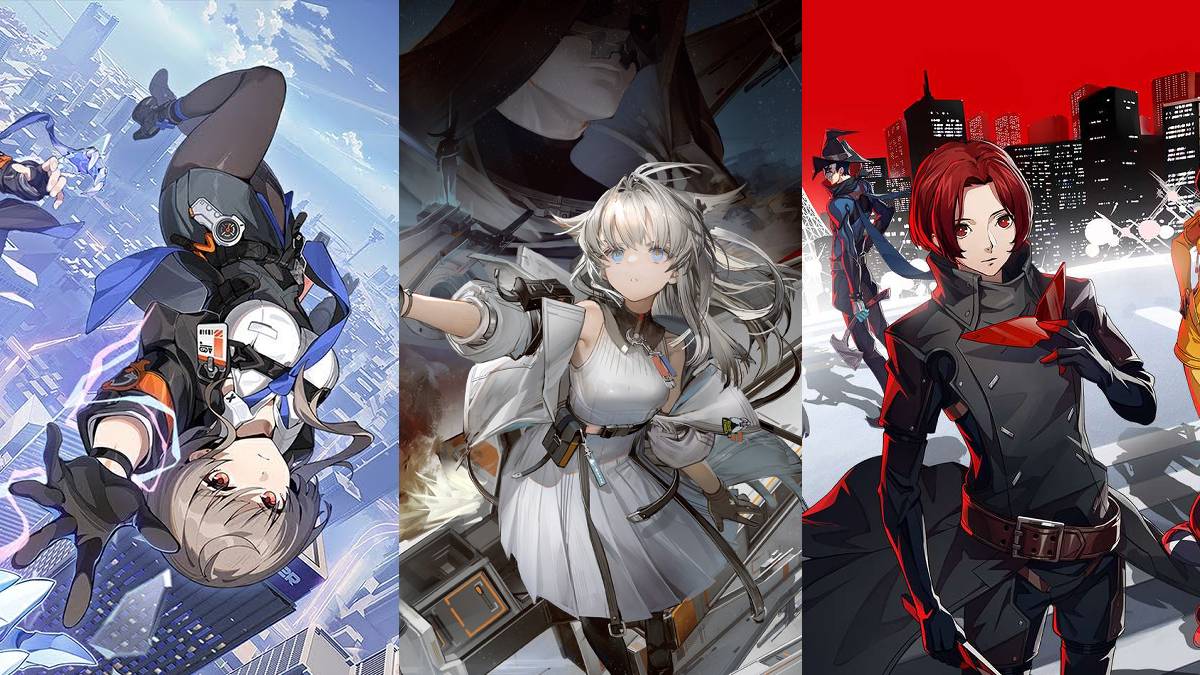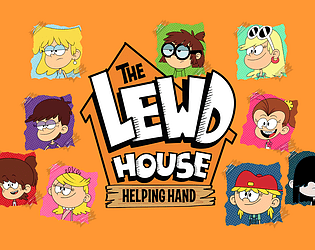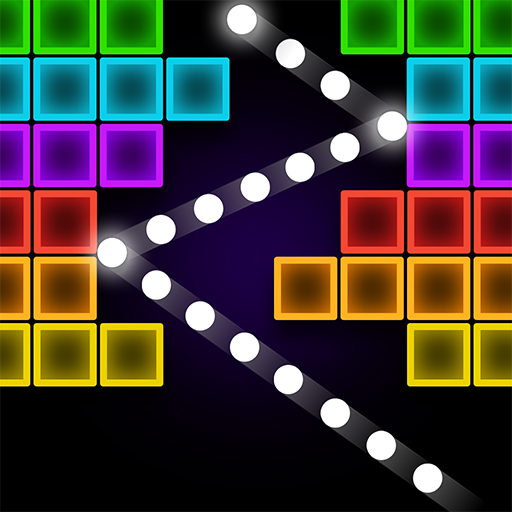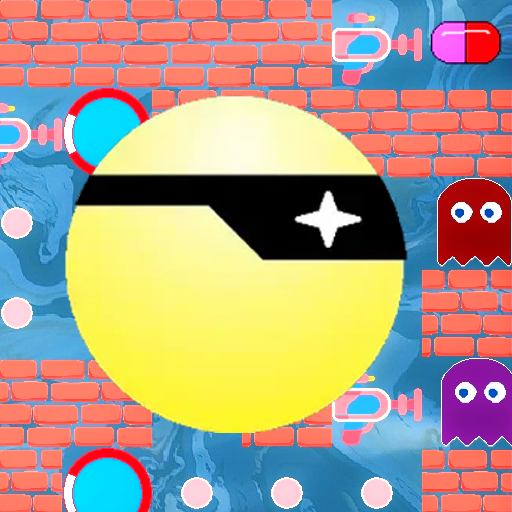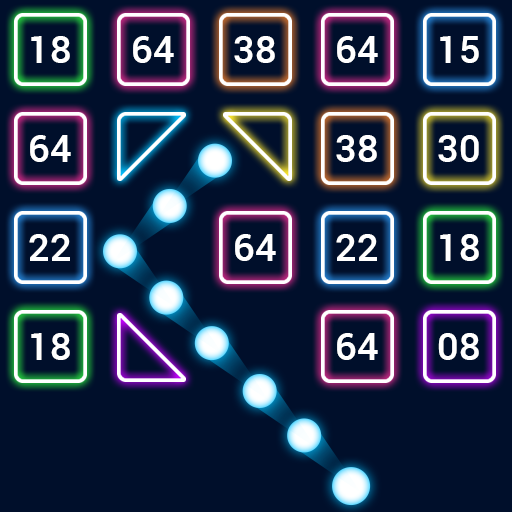"Outer Worlds 2 Enhances RPG Character Customization - IGN"
After getting an exclusive look at *The Outer Worlds 2*, it's evident that Obsidian Entertainment is doubling down on deepening the RPG experience. While the original game offered a more accessible approach with its streamlined character progression, the sequel is all about encouraging players to explore unconventional builds and embrace the game's complexity without sacrificing creativity. The goal is to foster specialization and celebrate the unique, sometimes quirky choices players can make.
Design director Matt Singh shared with me that the team is focused on "incentivizing the player to experiment with different builds, either traditional or non-traditional." He emphasized the importance of synergies between Skills, Traits, and Perks to create engaging and diverse character builds. This approach was evident in the 11 minutes of exclusive gameplay footage, showcasing revamped gunplay, stealth mechanics, gadgets, and dialogue options. For this IGN First coverage, we'll delve into the specifics of these revamped systems.
Rethinking the Skill System ---------------------------Lead systems designer Kyle Koenig reflected on the first game's design and noted, "We would often see characters good at everything, which by the end of the game, minimized your personal experience with your character." To address this, Obsidian is shifting away from the broad Skill categories of the original and introducing individual Skills with more pronounced differences. Koenig explained, "We wanted to focus on making each individual level-up and investment really important. There's less confusion on when I should invest in one Skill or the other. If I want to be a player that's all about guns and using medical devices, I know which Skills I really need to care about. By having them separated and not in groupings, it lets characters be more specialized."
Singh added, "There's more than just a traditional stealth-focused build, combat-focused build, or speech-focused build. There's a lot of blending of concepts, playing with other systems and incorporating those into a pretty broad, but unique range of different player profiles." He mentioned how certain Skills can have additional effects, like Observation, which can reveal hidden elements in the environment, such as secret doors or interactive objects, leading to new paths and strategies.
The Outer Worlds 2 Character Creation - Screenshots
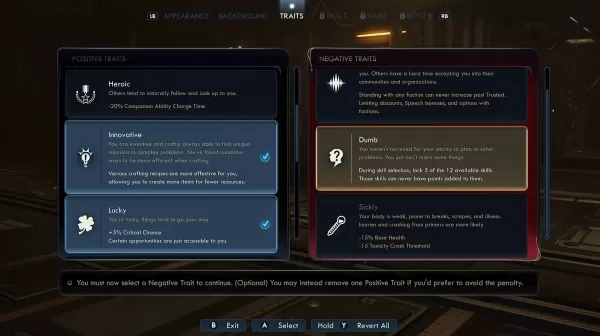
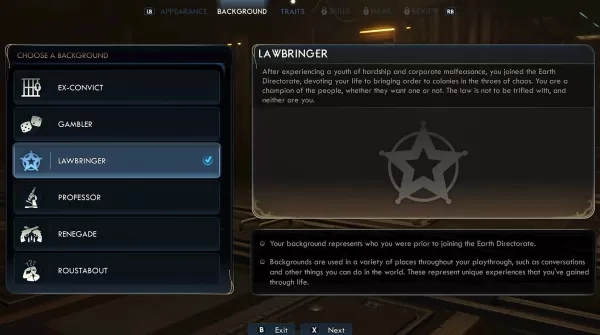 4 Images
4 Images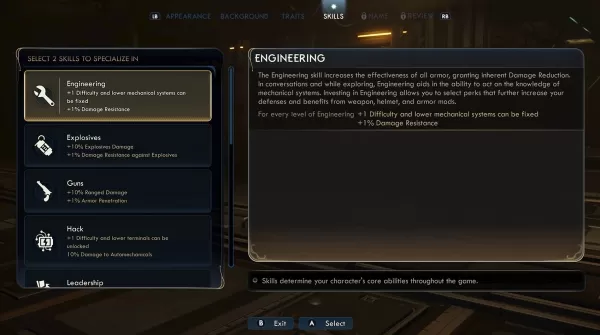
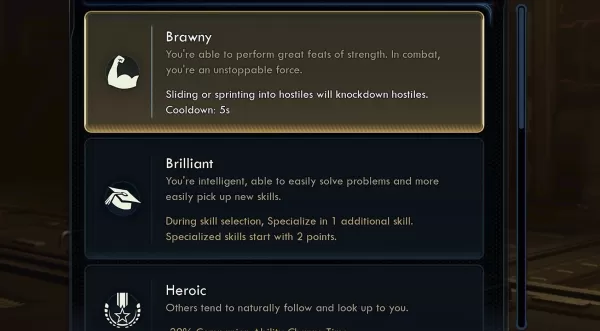
This approach, while standard for RPGs, marks a significant shift from the first game's more generalized Skill system. In *The Outer Worlds 2*, the revised Skill system aims to create more distinct character builds and open up new possibilities, particularly when combined with the revamped Perks system.
The Perks of Getting Experimental
Obsidian's focus on specificity and unique playstyles is evident in the Perks system. Koenig revealed, "We've significantly increased the number of Perks with over 90 of them – each of those requiring various Skills to unlock. As you invest in Skills, it changes how you can invest in Perks and leads you down many different paths." He highlighted the 'Run and Gun' Perk, tailored for shotgun, SMG, and rifle users, which allows firing while sprinting or sliding, and when combined with Tactical Time Dilation (TTD), enhances bullet-time combat. Another example is the 'Space Ranger' Perk, which offers unique dialogue interactions and damage boosts based on the Speech stat. Koenig stated, "The way we looked at them when designing them was to look at what are all the different modes of gameplay the player has, and what are all the actions they can take and how can we modify them."
Singh highlighted Perks designed for non-traditional playstyles, such as 'Psychopath' and 'Serial Killer', which reward players for eliminating NPCs with permanent health boosts. He noted, "Especially in an Obsidian game where we allow you to kill anybody – the game's going to respond, it's going to roll with it, and you're going to still be able to complete the game. It's actually a really fun way to play in a second or third playthrough just to see how far you can take it."
Koenig also discussed traditional builds that leverage elemental combat, such as using plasma for burning and healing, shock damage to control automechs, or corrosive damage to strip armor and maximize critical hits. He explained, "Even if you want to mix and match them, you can be a character that's all about plasma and burning things alive while getting healing from it – or using shock damage to scramble automechs and have them fight for you temporarily while paralyzing creatures and humans – or using corrosive damage to take away all their armor and make it so all your attacks against them are critical hits that deal insane amounts of damage."
Singh further emphasized the potential for experimental builds, mentioning mechanics that reward players for taking risks, such as "How do I construct a build where I'm actually incentivized to get in there and take damage so that I can then do other things effectively? I really like those kinds of creative builds that allow you to play with that idea and convert something that might be negative into a positive aspect of your build." This approach, which was part of the original game, is now a central theme in *The Outer Worlds 2*, especially in relation to Traits and Flaws.
The Positive and Negative Traits
Koenig touched on the influence of *Fallout* on *The Outer Worlds*, noting, "One of the things in *The Outer Worlds* that was a key off of *Fallout* was you could have negative attributes that would be actively detrimental to your character, but you get a few extra points to spend somewhere else." This concept was realized through the Flaws system, which offered permanent effects in exchange for Perk points. In *The Outer Worlds 2*, this system is expanding significantly.
The game now features a system of Positive Traits and Negative Traits, where choosing a negative can grant an additional positive. Examples include 'Brilliant', which provides extra Skill points during character creation, or 'Brawny', which allows players to knock down targets by sprinting into them. On the flip side, selecting a negative like 'Dumb' locks out investment in five Skills, or 'Sickly' permanently reduces base health and tolerance for toxicity. These are just a few of the options seen in early stages.
The Outer Worlds 2 Gameplay - Screenshots
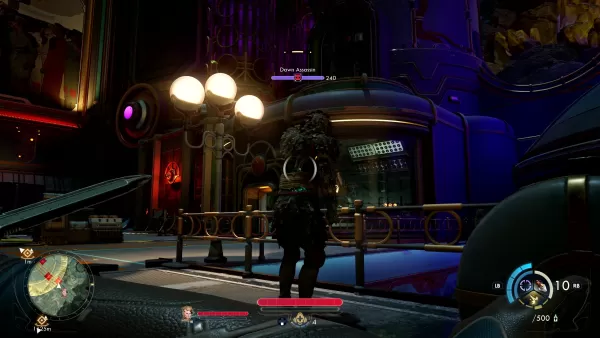
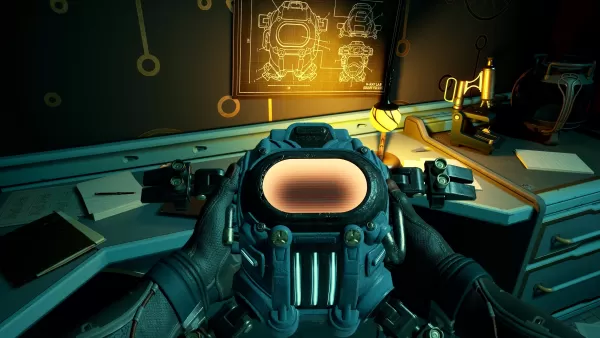 25 Images
25 Images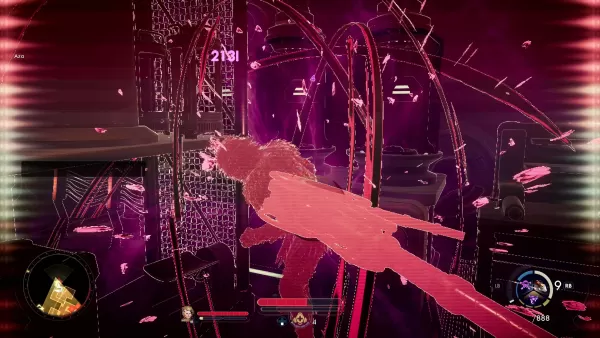
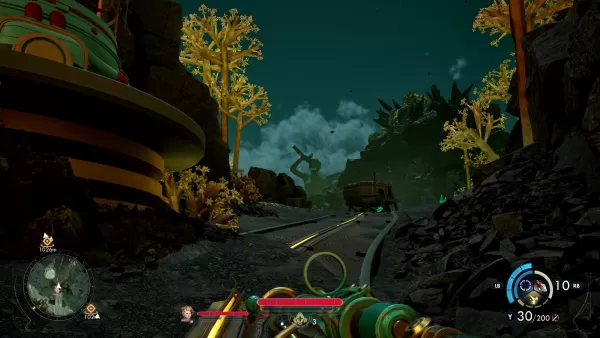
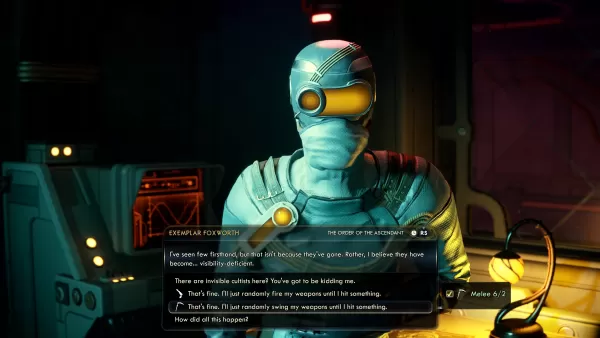
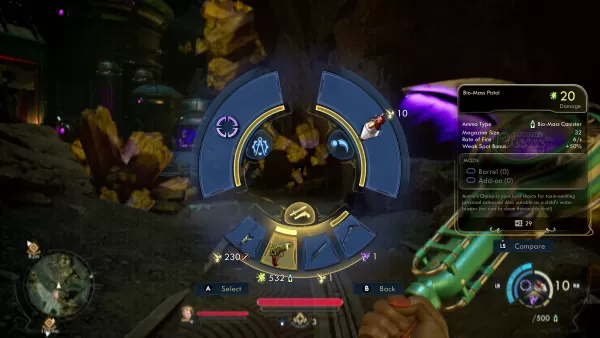
While a deeper exploration of the revamped Flaws will be covered in another article, it's clear that *The Outer Worlds 2* is pushing the boundaries with creative and sometimes humorous Flaws. In the original game, I often declined Flaws as the trade-off for extra Perk points wasn't compelling enough. In the sequel, the game monitors player behavior to offer Flaws with both positive and negative conditions, adding another layer to the Traits system. These Flaws appear based on gameplay habits, and while players must opt into them, they become a permanent part of the character.
Guiding Players and Ditching Respec
With the increased complexity in *The Outer Worlds 2*, Obsidian is committed to making these systems clear and accessible. Koenig explained, "Right from the get-go, from character creation, we really wanted to put in the forefront what are the differences of these skills and what they do." This clarity is achieved through in-game explanations and UI elements, including short videos in the menus that demonstrate the impact of Skills on gameplay. A notable feature is the ability to mark Perks as favorites before unlocking them, aiding in planning and organizing character progression.
Obsidian's decision to remove the respec option after the introductory sequence underscores the importance of player choice. Koenig stated, "By removing respec, we really incentivize it to be your experience. It is a part of your experience that no one else had, and I think that's really special about RPGs and something that respec tends to lessen." Singh added, "Philosophy-wise, we really feel all of your choices should matter. They should be meaningful changes to your gameplay experience. And he concluded, "This is just one of those ways where we're asking you to make a choice, stick to it, and see how that plays out in interesting and fun ways."
- 1 Silent Hill 2 Remake Confirms Xbox, Switch Release in 2025 Feb 08,2025
- 2 Connect Asus ROG Ally to TV or Monitor: Easy Guide Apr 06,2025
- 3 Fix 'Can't Connect to Host' Error in Ready or Not: Quick Solutions Jun 13,2025
- 4 The Best Free Comic Book Sites and Apps in 2025 Mar 18,2025
- 5 Dragon Soul Tier List: Ultimate Guide May 12,2025
- 6 "Persona Games and Spin-Offs: Complete Chronological List" Apr 09,2025
- 7 How to Run JioHotstar on PC with BlueStacks Feb 28,2025
- 8 Assassin's Creed Shadows: Max Level and Rank Cap Revealed Mar 27,2025
-
Top Arcade Classics and New Hits
A total of 10
-
Addictive Arcade Games for Mobile
A total of 10
-
Android Apps for Video Content Creation
A total of 10









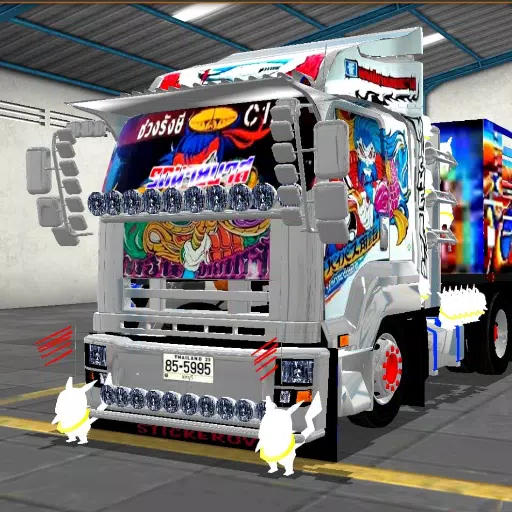

![Roblox Forsaken Characters Tier List [UPDATED] (2025)](https://img.actcv.com/uploads/18/17380116246797f3e8a8a39.jpg)

